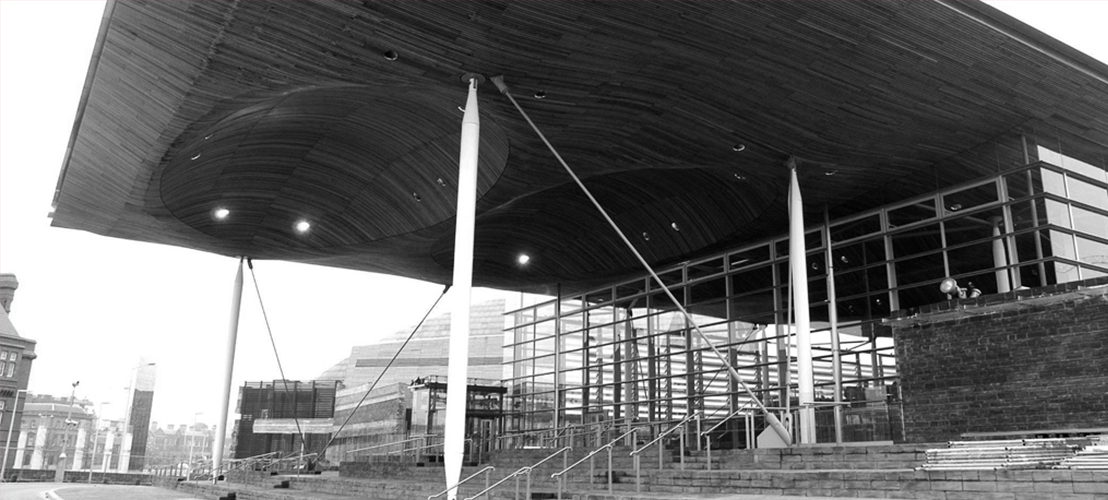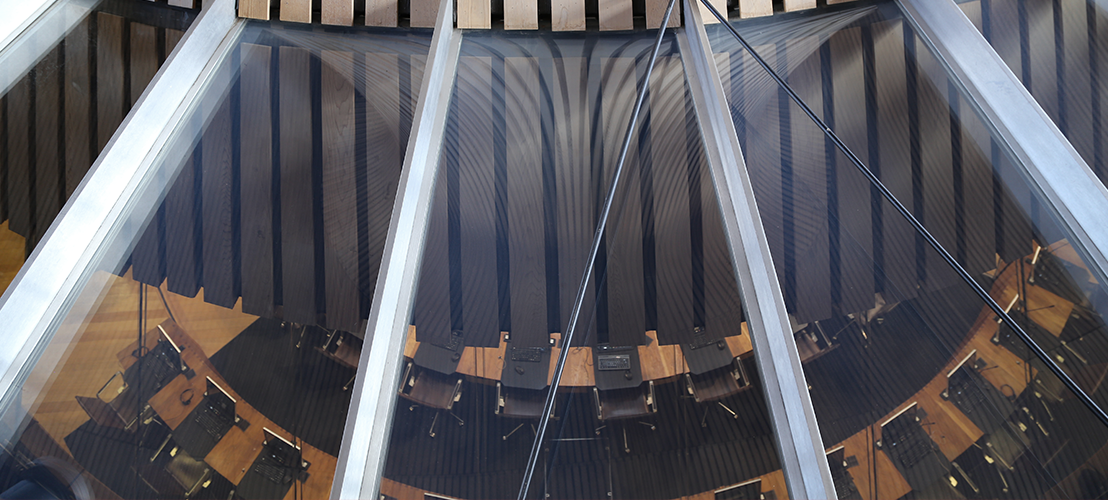 The ‘Creating a Parliament for Wales’ consultation sets the direction for the next stage of Wales’ devolution journey.
It presents an important contrast to the real threat that the UK Government will centralise rather than transfer devolved powers back to the National Assembly for Wales in the EU Withdrawal Bill. Indeed, rising above the lack of respect and undermining of devolution, the consultation builds upon the 2011 referendum result.
It prepares the way for understanding how the people of Wales wish to see powers included in the Wales Act 2017 utilised. And there’s an opportunity for us all to contribute to the discussions.
A strong basis for the consultation was established by the Expert Panel on Electoral Reform established by the Assembly Commission. They took evidence and evaluated a range of matters in order to develop informed and robust recommendations regarding electoral reforms for Wales.
Personally, what’s extremely important about this consultation is that it provides an opportunity for the people of Wales to voice their opinions on proposed to enable the Assembly to work in a more effective way.
It tackles some key issues that have challenged the devolved body since its early years, such as the number of Assembly Members, and also influence how to strengthen the quality of democracy in Wales into the future.
The ‘Creating a Parliament for Wales’ consultation sets the direction for the next stage of Wales’ devolution journey.
It presents an important contrast to the real threat that the UK Government will centralise rather than transfer devolved powers back to the National Assembly for Wales in the EU Withdrawal Bill. Indeed, rising above the lack of respect and undermining of devolution, the consultation builds upon the 2011 referendum result.
It prepares the way for understanding how the people of Wales wish to see powers included in the Wales Act 2017 utilised. And there’s an opportunity for us all to contribute to the discussions.
A strong basis for the consultation was established by the Expert Panel on Electoral Reform established by the Assembly Commission. They took evidence and evaluated a range of matters in order to develop informed and robust recommendations regarding electoral reforms for Wales.
Personally, what’s extremely important about this consultation is that it provides an opportunity for the people of Wales to voice their opinions on proposed to enable the Assembly to work in a more effective way.
It tackles some key issues that have challenged the devolved body since its early years, such as the number of Assembly Members, and also influence how to strengthen the quality of democracy in Wales into the future.
 Even back in 1999 when the Assembly was a newly-established body with limited powers, the implications of the limited number of 60 Assembly Members soon became apparent.
From the Richard Commission, to the All-Wales Convention to the Silk Commission, independent reviews have called for increasing the number of elected members. In each case, they knew all too well that proposing more elected politicians is far from popular.
Nevertheless, they recommended increasing the number of members in order to strengthen the Assembly’s capacity to scrutinise the government’s work and legislation. Indeed, the Silk Commission suggested that there were real threats to how Wales is governed without increasing the number of AMs owing to high-level pressures and the constraints on their ability to scrutinise and fulfil their legislative duties effectively.
Given the increasing pressures, it’s no surprise that the Expert Panel has also recommended increasing the Assembly’s size to at least 80 members. A decrease in parallel in the number of elected members at other levels of government would also be a welcome step.
Even back in 1999 when the Assembly was a newly-established body with limited powers, the implications of the limited number of 60 Assembly Members soon became apparent.
From the Richard Commission, to the All-Wales Convention to the Silk Commission, independent reviews have called for increasing the number of elected members. In each case, they knew all too well that proposing more elected politicians is far from popular.
Nevertheless, they recommended increasing the number of members in order to strengthen the Assembly’s capacity to scrutinise the government’s work and legislation. Indeed, the Silk Commission suggested that there were real threats to how Wales is governed without increasing the number of AMs owing to high-level pressures and the constraints on their ability to scrutinise and fulfil their legislative duties effectively.
Given the increasing pressures, it’s no surprise that the Expert Panel has also recommended increasing the Assembly’s size to at least 80 members. A decrease in parallel in the number of elected members at other levels of government would also be a welcome step.
In seeking to strengthen Welsh democracy in the future, the Panel’s recommendations to reduce the minimum voting age in Assembly elections to 16 years old is an important step in order to raise political awareness and participation amongst young people.
Creating a Parliament for Wales
This is the start of a new phase of devolution and now is your chance to tell us how you want your National Assembly to be.
 In our research into Language, Education and Identity as part of the WISERD ESRC Civil Society Research Centre we have interviewed 16+ year-old students in schools and FE colleges across Wales, including asking them on their views on politics and voting.
A number of them expressed a strong desire to have the right to vote from 16 years old. The extension of the vote to 16 year olds during the Scottish Independence Referendum raised expectations amongst young people.
In our research, a number expressed disappointment (and stronger feelings at times) that they did not have the opportunity to vote in the Referendum on the UK’s withdrawal from the EU.
At the same time, the research confirms that there are higher levels of interest in politics amongst some young people than would be expected, and that they tend to be unsure and lack confidence regarding their levels of understanding of the political process.
Consequently, alongside establishing 16 as the voting age for Assembly elections, we need to increase and formalise the political and citizenship education that our young people receive.
Whilst there are distinctively Welsh arrangements in place in terms of personal and social education and the Welsh Baccalaureate, the research suggests that reforms are needed to better equip young people.
We need citizenship and democracy education that not only provides young people with more information but is high quality by extending opportunities to discuss and debate political topics.
These are essential steps in order to improve the quality of democracy in Wales in the future.
Do join in the discussions.
In our research into Language, Education and Identity as part of the WISERD ESRC Civil Society Research Centre we have interviewed 16+ year-old students in schools and FE colleges across Wales, including asking them on their views on politics and voting.
A number of them expressed a strong desire to have the right to vote from 16 years old. The extension of the vote to 16 year olds during the Scottish Independence Referendum raised expectations amongst young people.
In our research, a number expressed disappointment (and stronger feelings at times) that they did not have the opportunity to vote in the Referendum on the UK’s withdrawal from the EU.
At the same time, the research confirms that there are higher levels of interest in politics amongst some young people than would be expected, and that they tend to be unsure and lack confidence regarding their levels of understanding of the political process.
Consequently, alongside establishing 16 as the voting age for Assembly elections, we need to increase and formalise the political and citizenship education that our young people receive.
Whilst there are distinctively Welsh arrangements in place in terms of personal and social education and the Welsh Baccalaureate, the research suggests that reforms are needed to better equip young people.
We need citizenship and democracy education that not only provides young people with more information but is high quality by extending opportunities to discuss and debate political topics.
These are essential steps in order to improve the quality of democracy in Wales in the future.
Do join in the discussions.
Information about the Centre for Welsh Politics and Society – WISERD@Aberystwyth
The Centre for Welsh Politics and Society – WISERD@Aberystwyth is an interdisciplinary research centre at Aberystwyth University, which aims to develop our understanding of politics and modern society in the context of a connected world, supporting and undertaking world-class research in the social sciences and contributing to public understanding and policy development in Wales. We at the Centre for Welsh Politics and Society are delighted to be collaborating with the Assembly Commission on an event in Aberystwyth on 15 March as part of the ‘Creating a Parliament for Wales’ consultation. The event is being held at 18.00 on Thursday 15 at the Arad Goch Centre, Bath Street, Aberystwyth.


